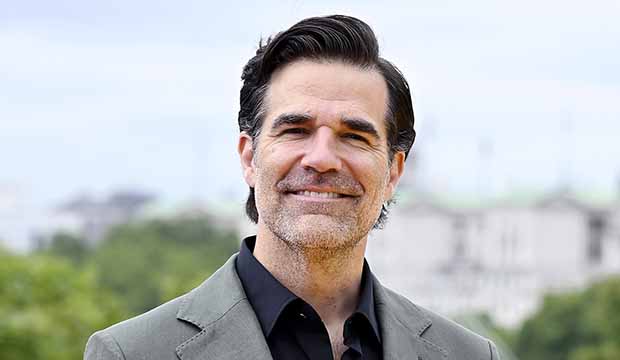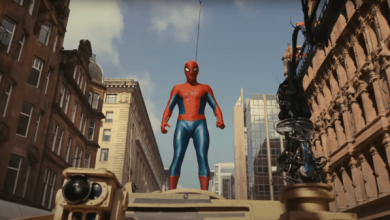Rob Delaney Shines in FX’s Dying for Sex as “Neighbor Guy” Opposite Michelle Williams

FX’s limited series Dying for Sex is making waves for its daring blend of comedy, intimacy, and terminal illness, and at the heart of its emotional and provocative core is Rob Delaney, who plays the eccentric and unforgettable “Neighbor Guy.” The series, now streaming on Hulu, stars Michelle Williams as Molly, a woman confronting her metastatic breast cancer diagnosis by embarking on a sexually liberating journey after leaving her husband of 15 years (played by Jay Duplass).
From Comic Relief to Emotional Anchor
Delaney’s character might not have a name, but Neighbor Guy leaves a lasting impression. “Worst case scenario, he’s this annoying, gross collection of sights, sounds, and smells,” Delaney jokes. But as the series unfolds, the character becomes a vital emotional anchor for Molly.
“They thought I had the right brew — the right pervert-kind ratio — to play this wonderful character,” Delaney quips, revealing that the role was offered directly to him. What begins as a purely physical relationship evolves into something far deeper — a bond marked by emotional vulnerability and transformation.
Michelle Williams: Co-Star, Producer, Powerhouse
Working with five-time Oscar nominee Michelle Williams was a highlight for Delaney, who called her “a dream come true.” He adds, “She’s an incredibly generous scene partner… I can’t say enough positive things about her.” Williams also served as a producer on the series, guiding its tone and execution.
Their chemistry was essential, especially given the show’s bold intimacy. Delaney, who previously explored similar themes in his hit series Catastrophe, joked that he and co-creator Sharon Horgan “invented intimacy coordination” before it became standard practice in Hollywood.
The Humor in the Taboo
One standout moment in Dying for Sex sees Neighbor Guy admit a rather unconventional fetish — being kicked in a sensitive area. “Michelle got to genuinely kick, and I got to react to real physical ‘stimuli,’” Delaney laughs, clarifying that protective gear was used. The scene is both hilarious and disarming, emblematic of the show’s fearless tone.
Heartbreak, Rain, and the Art of Letting Go
As Molly’s health deteriorates, the series transitions into deeply emotional territory. Delaney recounts filming in dimly lit hospital rooms during rainy days, describing the atmosphere as “an antechamber between the living world and whatever comes next.”
“The hospital scenes were a very different kind of acting than I’d ever done before,” he says. “I cried a lot. I had to budget my crying for the day.”
See More ...
A Life Changed by Connection
Reflecting on the meaning behind Molly and Neighbor Guy’s bond, Delaney says:
“She’s having a series of sacred or magical experiences as she consciously moves toward death. Neighbor Guy has met her at the right time — she gives him a gift. I must imagine that after Molly dies, Neighbor Guy has a much richer and better life having known her.”
A Career Highlight for Rob Delaney
Though Delaney is widely loved for his comedic work, he calls Dying for Sex his favorite acting job to date — outside of Catastrophe, which he co-created.
“This show was of that stature for me… Now I just want to do stuff where everybody’s firing on all cylinders.”
Watch Dying for Sex on Hulu
Dying for Sex delivers bold storytelling, emotionally rich performances, and a fearless take on taboo topics. Anchored by Michelle Williams and Rob Delaney, the series is a must-watch for fans of raw, human drama blended with dark comedy.




